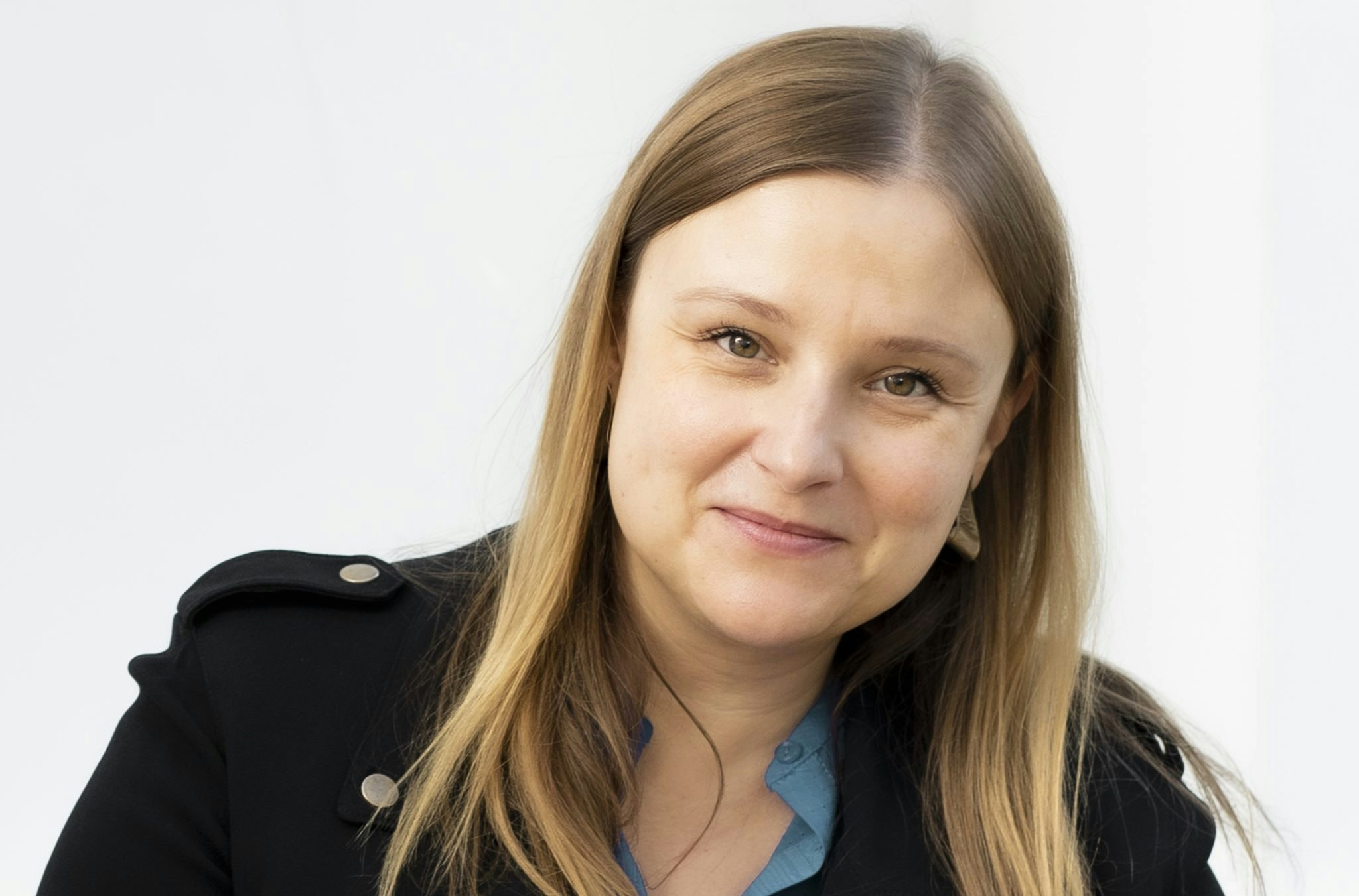Ophelia Brown is ahead of the curve.
When the LocalGlobe and Index alum launched Blossom Capital in 2018, it was one of the few European firms led by someone with experience at a top-tier firm. It was also one of the only firms led by a woman.
She’s now on her third fund, of $432m, and counts around 25 companies, including payments platform Checkout.com, HR platform Localyze, SaaS business Pigment and crypto exchange Moonpay, in the portfolio. Blossom’s strategy is largely unchanged: the team still only does about five or six deals at Series A per year, targeting companies thinking about expanding internationally, especially to the US.
Brown has been pretty outspoken on the UK tech scene’s woes — from Silicon Valley Bank UK’s rescue deal to lacklustre appetite for listings — and has a fierce reputation among her peers.
Sifted invited Brown onto our podcast, Startup Europe, for an in-depth interview covering the crypto downturn, why she’s excited about the French startup scene and how best to work with early-stage investors. We've summarised some of her most interesting points below. You can listen to the full episode here, or watch it here:
Sifted: One of your portfolio companies, Checkout, was valued at $40bn when it raised at the start of last year, and then reduced its internal valuation to $11bn at the end of last year. What do you think the business is worth now? And how are you thinking about recalibrating valuations of portfolio companies as, especially those later stage companies, lots are seeing their valuations dip?
Brown: Every VC has had to take another look at their portfolio in light of what's happened in the public markets and tech selling off more broadly. Obviously, we're not sitting with 2021 valuations anymore.
A lot of companies have taken down valuations internally because they still need to attract the best talent and people want to believe in the value of the options and their stock and the upside; that's why you join a startup — you're being somewhat compensated for the risk that you're taking. And obviously, if you were being issued options in 2021, when there has been a change in the public markets and the company's valuation, it's probably hard for you to see significant upside from that.
And so companies — and this is more of a US move — have used the 409A [an independent appraisal of the fair market value of a private company] to bring down their internal valuation so they can say to new employees coming in, "We can give you stock, and you can still believe in the upside from here".
I think Checkout is still one of the most promising fintechs to have been built out of Europe, and the company has huge potential.
What about M&A? People have been talking about it for quite a while, but we haven't really see it happen yet. Do you think that's still ahead of us — a big spurt of companies that can't raise their next round, or can't raise it at an enticing valuation, so they think it might be better to sell? Or, on the flip side, will we see the companies that are in a lucky position thinking it's time to scoop up some new assets?
There are certainly a lot of large companies with big cash balances. And even in this environment, where the cost of capital is significantly higher than before, I think they will be looking at potential acquisitions.
But I think it's still incredibly hard to sell a company or to be acquired. What we're seeing now is some caution as to, "What is the right valuation for this company? And what exactly are we acquiring?" I think it will come. You hit the nail on the head; some companies are going to struggle to raise in the next year, and we'll be more interested in that as an exit path.
Crypto: lots of people thought it was the future and other people thought it was a solution in need of a problem. Why were you excited about crypto and are you still excited about it?
We've been here before — we're in another crypto winter. And I think we'll come out of it.
We're excited about crypto for a multitude of reasons. One, it is a subsector of financial services, it's established. Even with Bitcoin trading where it is; it might be down 100% from its peak, but there's still a lot of value there. There are lots of people that use it for trading, for store of value, etc. And even with everything that played out, DeFi [decentralised finance] platforms proved that they work much better than CeFi [centralised finance] platforms. And so I think that remaining as a subsector of financial services where people will trade will continue. And when we come back to a risk-on environment, I think we'll see volumes come back again.
Where we believe that there is great potential is where there's a lot of inefficiency in the financial markets and financial payments. If you think about payments, for example, and the amount of margin that gets lost in a transaction paying out from the USA to Ethiopia, or another country in Africa.
Onto the current VC hype: generative AI. You told me you’re seeing lots of deals. What do you think is hype — and what isn’t?
The technology is profound, there's no question about it, and what it's going to be used for is pretty amazing. We are, no doubt though, in a hype cycle. We need to come back down to the actual application: what are people going to use it for? What are people going to pay for?
We're seeing lots of consumer and prosumer ideas today but actually, it will be enterprise where the real revenue will be generated. For example: banks could use it for compliance in terms of searching regulatory documents, or emails. You've already seen early innings of AI being leveraged in law, but I think that will continue. We are looking at domain-specific and vertical-specific solutions.
We still have to get over some hurdles in terms of reliability, security and hallucinations, which need to be improved upon.
Onto one of the big questions around at the moment. Is London losing its lead as the tech capital of Europe?
I would say yes. If we look at the companies that have come out in years prior — Revolut, Checkout, Deliveroo, Transferwise — these were great companies that were built by people who didn't necessarily grow up in the UK.
Brexit has had a profound impact on technology startups in terms of hiring. We've invested in Localyze, which is a software that solves a lot of the inefficiencies and complexities in the process — but it's still incredibly arduous. And so if you're a startup and you want to move fast, and you want to hire a lot of people, putting in more red tape and more paperwork is an issue at this stage.
If founders have an option of where to start their company, London is no longer the first choice. They’re choosing Paris, Berlin, Amsterdam… Paris is doing exceptionally well. We're actually moving our AGM this year to Paris, in kind of a show of support for the ecosystem and our conviction in the ecosystem. I think Macron has done wonders in terms of his policies and how vocal he's been in support of big tech.
What do you think Rishi Sunak needs to do to level up to Macron?
I think we need better policy for sure when it comes to visas. I think that needs re-exploring. France did great with Bpifrance and the loans that it provides to startups who have managed to raise equity; we could consider something similar. In terms of even the rhetoric and Tech Nation being closed down… I think there's much to be said around how much more support we could rally around the startup ecosystem.
You've got quite a badass reputation among other VCs. Do you think you have to be quite ruthless to succeed in VC?
I think VC by nature is definitely a competitive sport. I think everyone who's participating would say that. We want to lead Series A deals, and we want to be great partners to our companies, which probably makes us slightly more competitive than lots of seed funds that are collaborating together. And I hope that people understand that we're doing it for the best interest of our founders — we want to be great partners to them.
You invited me to a Blossom dinner last year. And I was struck by how many early-stage VCs, solo GPs and mega-angels you had in attendance. How do you maintain that network and use it as you go about your VC life?
Those seed and angel relationships are incredibly important to us. When we started in 2018, one of the premises was that there are great seed funds and great angels in every single country, and they're the ones that we need to work with to find the best Series As. When we started, maybe it was like 40, 50 funds; it's probably 100 or so funds and angels now.
We spend a lot of time on the road, we love to spend time with people in person building those relationships. We don't do seeds — at the end of 2021, we said no more seed, which we didn't realise was a contrarian move at the time. So we never compete with them either. So if we see things that are too early, we always want to help them and send dealflow their way and just try and be helpful in whatever way we can be.
Seed funds definitely get irritated if you say, "Send me your deals, send me your deals" — it has to be a relationship. You have to be giving them something that's valuable. It's way more interesting if you just have a conversation on AI, like, "What have you seen? What have you not done? Where do you think the potential is?", rather than just saying, "What's your latest deal that I should do?" So we don't have bi-weekly catch-ups, it's much more natural. When we're in Warsaw, I'll go and see the three or four funds I really like and have lunch or dinner and have a conversation.



